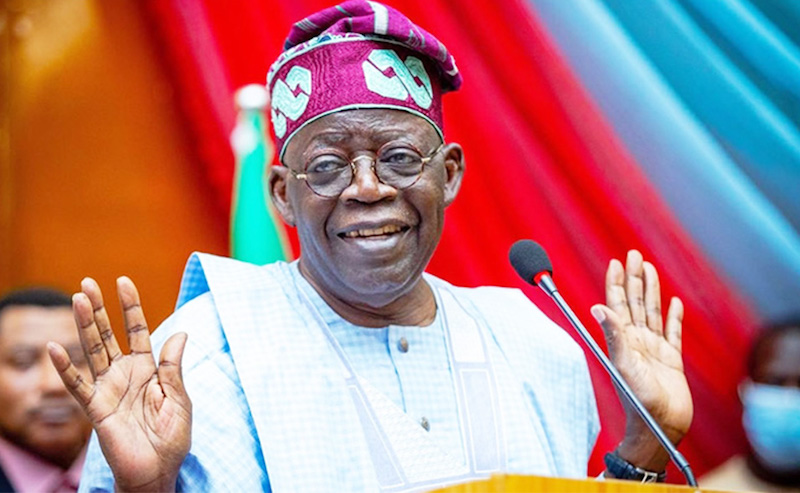Nigeria’s public debt has risen to a record N142.3 trillion as of September 30, 2024, up 5.97% from N134.3 trillion in June 2024. The rising debt figure, which includes both domestic and external borrowings, represents the increasing fiscal problems the Nigerian government is experiencing due to volatile exchange rates and rising fiscal responsibilities.

External Debt Increases Significantly in Naira Terms
Data from the Debt Management Office (DMO) reveals that Nigeria’s external debt in dollar terms only saw a marginal increase of 0.29%, rising from $42.90 billion in June to $43.03 billion by the end of September 2024. However, the depreciation of the naira during this period had a profound impact on the debt in local currency terms, driving a 9.22% increase in external obligations, from N63.07 trillion to N68.89 trillion.
Related News
Lagos Lawmakers Impeach Speaker Obasa Amid Multibillion-Naira Fraud Allegations
Appeal Court Reverses Decision to Remove Sanusi as Kano Emir
Lagos Lawmakers Impeach Speaker Obasa Amid Multibillion-Naira Fraud Allegations
El-Rufai Calls Defection Reports ‘Baseless Lies,’ Stays Put
The naira’s sharp depreciation from N1,470.19/$ to N1,601.03/$ during the quarter contributed significantly to the increase in the country’s external debt burden. This highlights the risks associated with external borrowing, as currency fluctuations can drastically affect the local currency value of foreign loans.
Domestic Debt Shows Mixed Trends
On the domestic front, Nigeria’s domestic debt stock, while showing a decline in dollar terms, also rose in naira terms. Domestic debt decreased by 5.34% in dollar terms, from $48.45 billion in June to $45.87 billion in September. However, when converted to naira, the domestic debt increased by 3.10%, rising from N71.22 trillion to N73.43 trillion over the same period.
The Federal Government’s share of domestic debt rose from N66.96 trillion to N69.22 trillion, while the debt of states and the Federal Capital Territory (FCT) showed a slight decline from N4.27 trillion to N4.21 trillion. Despite the drop in dollar terms, the continued rise in naira-denominated domestic debt signals a growing reliance on local borrowing to meet fiscal needs.
Bonds and Promissory Notes Drive Debt Growth
A detailed breakdown of Nigeria’s domestic debt reveals that the issuance of Federal Government bonds played a key role in driving the rise in domestic obligations. Federal Government bonds increased by 4.47%, from N52.32 trillion to N54.65 trillion between June and September 2024. Bonds now account for 78.95% of Nigeria’s total domestic debt stock, up from 78.13% in the previous quarter.
The government also introduced its first-ever domestic dollar-denominated bond, raising N1.47 trillion from the sale of a $500 million bond. The bond issuance marked a significant milestone, reflecting growing investor confidence in Nigeria’s capital markets, with a subscription rate of 180%.
Despite the relative success in the bond market, the broader increase in domestic debt underscores Nigeria’s escalating reliance on local financial markets to address its funding needs, particularly as external borrowing options remain constrained.
Related News
Lagos Lawmakers Impeach Speaker Obasa Amid Multibillion-Naira Fraud Allegations
Appeal Court Reverses Decision to Remove Sanusi as Kano Emir
Lagos Lawmakers Impeach Speaker Obasa Amid Multibillion-Naira Fraud Allegations
El-Rufai Calls Defection Reports ‘Baseless Lies,’ Stays Put
Debt Servicing Escalates
With the country’s debt burden still on the rise, the cost of debt servicing has continued to mount for the Nigerian government. According to reports, Nigeria spent a staggering N8.94 trillion on debt servicing in the first nine months of 2024, accounting for nearly 47% of total government expenditure.
This sharp increase in debt servicing costs has raised concerns about the country’s long-term fiscal health. The government’s total revenue in the period amounted to N6.08 trillion, far below the amount spent on debt servicing, highlighting a growing reliance on borrowing to meet fiscal obligations. The trend further underscores the challenge of balancing Nigeria’s fiscal needs while managing the rising cost of debt.
Increasing Fiscal Pressures
The Nigerian government has also faced rising recurrent expenditures, with total spending increasing by 45.6% from N10.38 trillion in 2023 to N15.11 trillion in the first three quarters of 2024. Personnel costs alone increased by 20% to N3.59 trillion, while overhead costs surged by 51.4% to N892.85 billion. Transfers to sub-national governments grew by 83.8% to N1.31 trillion, further compounding fiscal pressures.
Capital expenditure increased by 20.8% to stand at N3.86 trillion from the revised N3.19 trillion provided in the 2023 Budget. Although key investment areas for housing, roads, and railways show that critical areas of investment in infrastructure were high on the FG’s priority, the overall increase in expenditures highlights a clear challenge on the financing requirement toward Nigeria’s developmental goals within continued revenue shortfalls.
Related News
Lagos Lawmakers Impeach Speaker Obasa Amid Multibillion-Naira Fraud Allegations
Appeal Court Reverses Decision to Remove Sanusi as Kano Emir
Lagos Lawmakers Impeach Speaker Obasa Amid Multibillion-Naira Fraud Allegations
El-Rufai Calls Defection Reports ‘Baseless Lies,’ Stays Put
The Way Forward: Economic Reform and Revenue Generation
Amid these growing fiscal challenges, the Nigerian government is focusing on revenue generation and economic reforms to address the country’s fiscal deficit. The Minister of Budget and Economic Planning, Abubakar Bagudu, highlighted the administration’s efforts to boost revenue through strategic reforms, including the removal of fuel and forex subsidies, and the expansion of non-oil sectors such as agriculture, solid minerals, and the creative industries.
The Federal Government is also making concerted efforts to ramp up crude oil production and improve tax collection, with the aim of increasing the revenue-to-GDP ratio to 18%—a key target for long-term fiscal sustainability.
While President Bola Tinubu’s Renewed Hope Agenda has been started by his administration, the issues relating to Nigeria’s increasing debt and the sustainability of fiscal policies stand out as critical questions.
Throughout such complex challenges in the country, its strategies will have to strike a balance between debt management and the imperative of infrastructure development, social investments, and revenue diversification to consolidate a long-term economic future.
Nigeria’s growing public debt, now standing at an unprecedented N142 trillion, speaks volumes about the country’s fiscal challenge. Although its external borrowings have remained fairly steady in dollar terms, the dramatic depreciation of the naira significantly jacked up the local currency cost of foreign debt. Domestic borrowing, specifically through bonds, has been a critical financing tool for government expenditure. However, with debt servicing costs eating into a large portion of government revenue, Nigeria faces a precarious fiscal future unless substantial reforms and revenue-generating strategies can be effectively implemented. The road ahead will require careful economic management to prevent the country from falling into a debt trap.

Reported by GistNexus Correspondent, Demilola Adeyemi and Edited by Mr. Chibueze Onwuka
